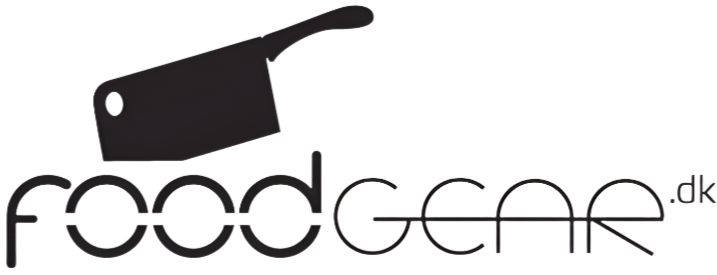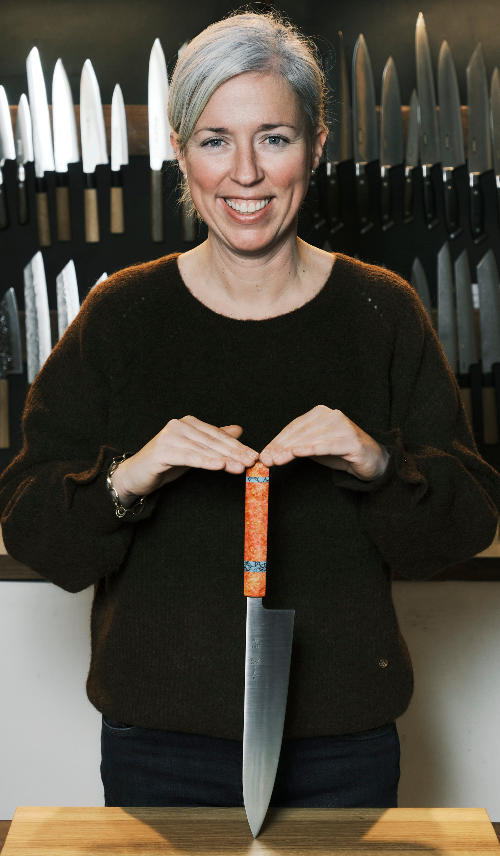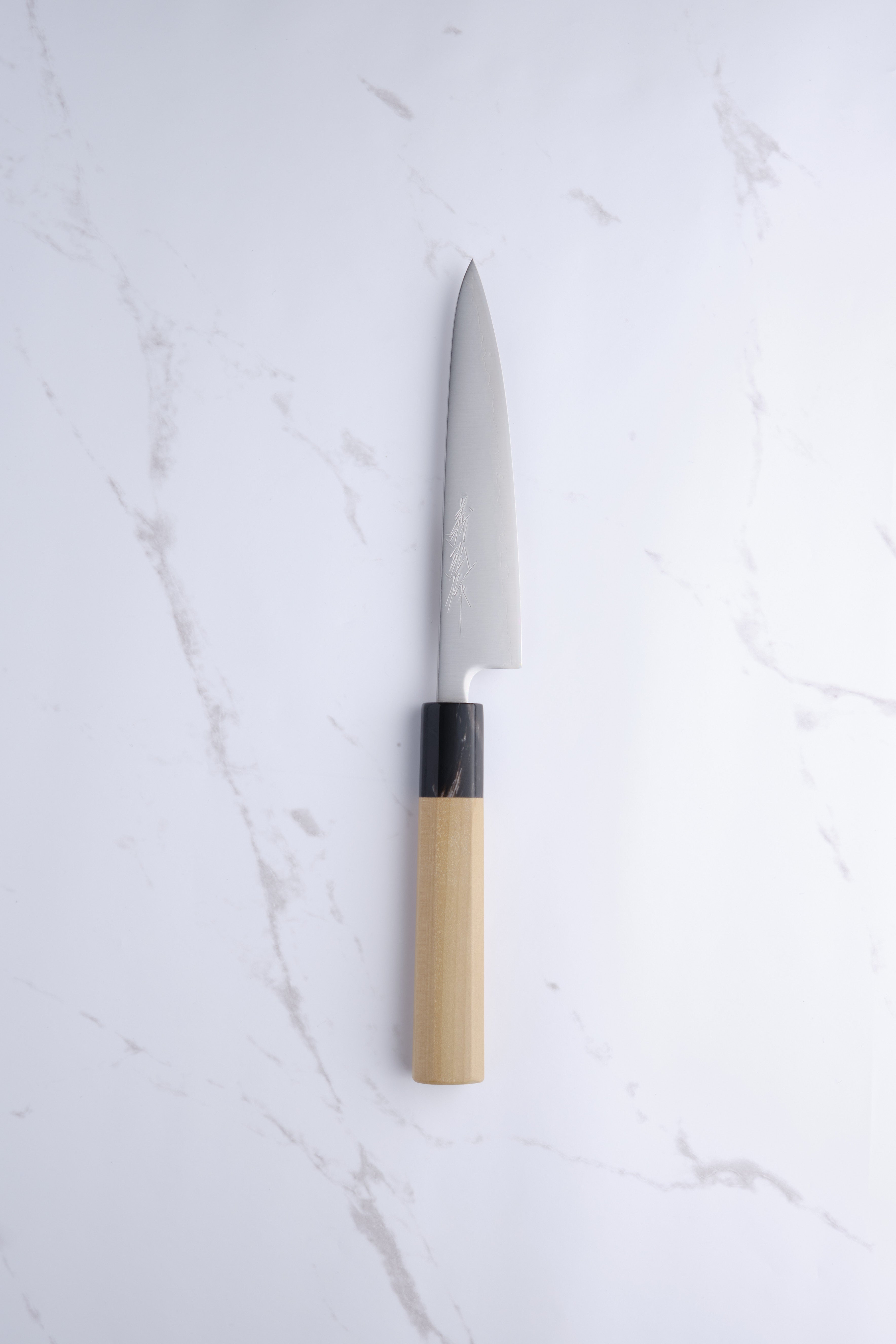
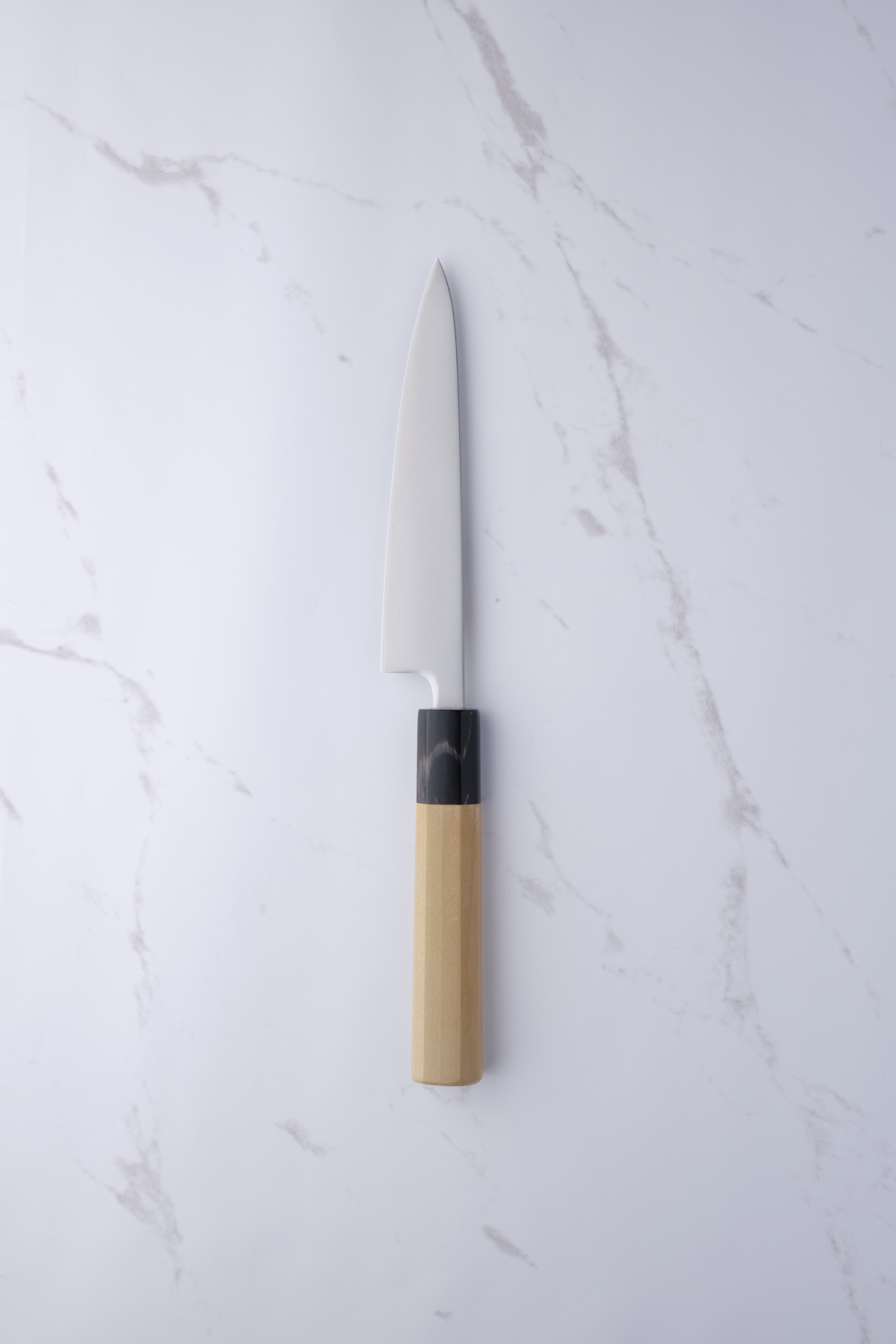
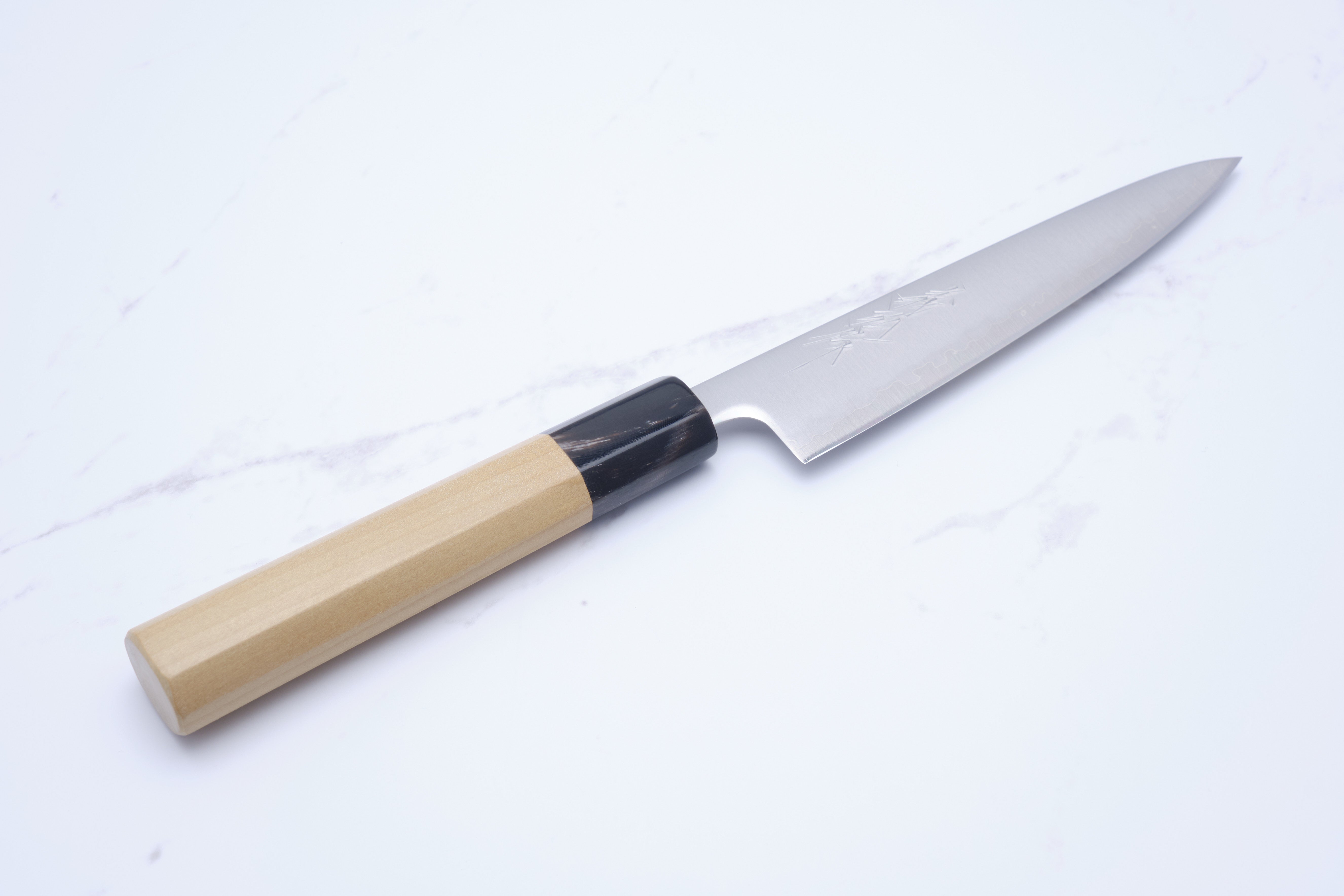
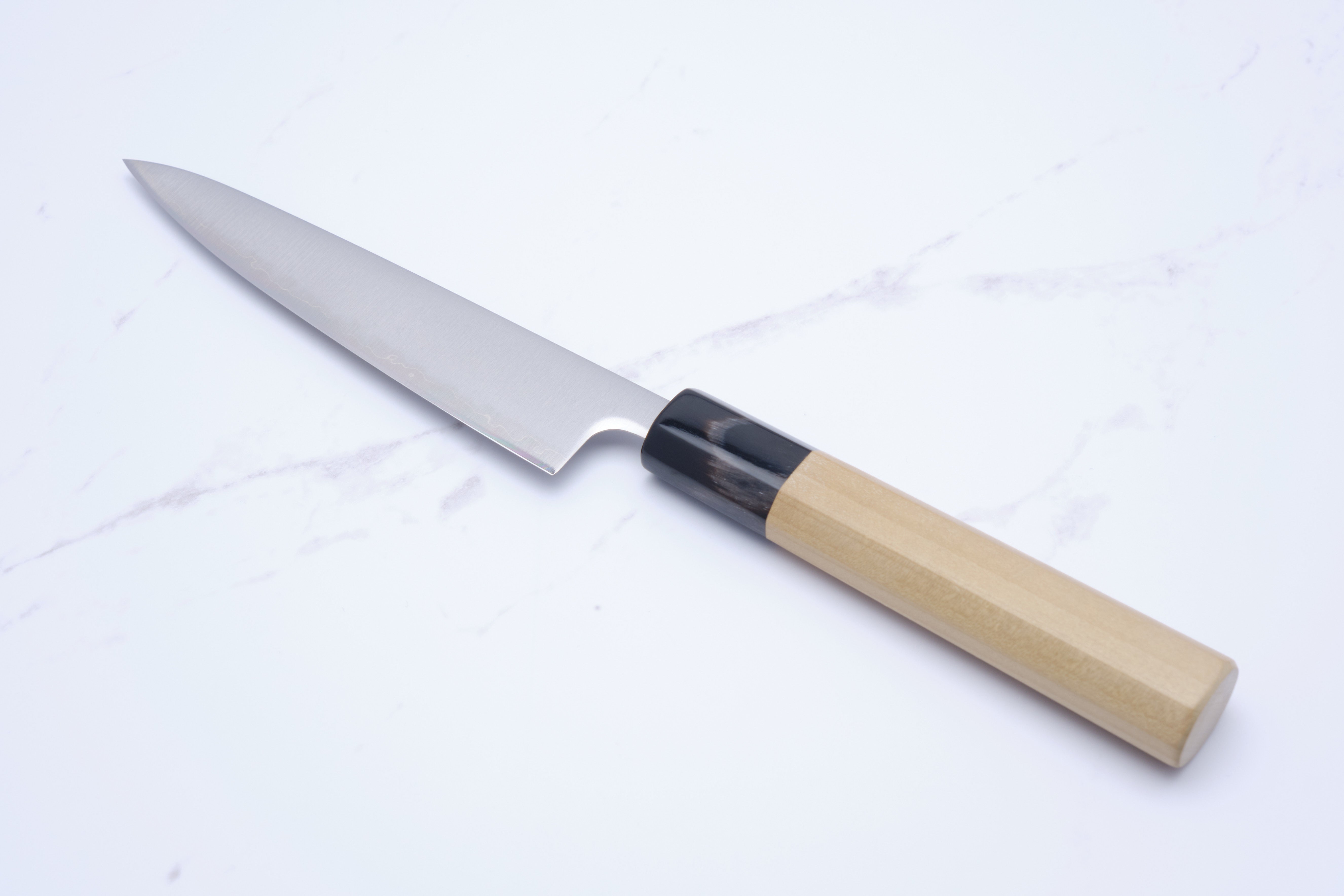
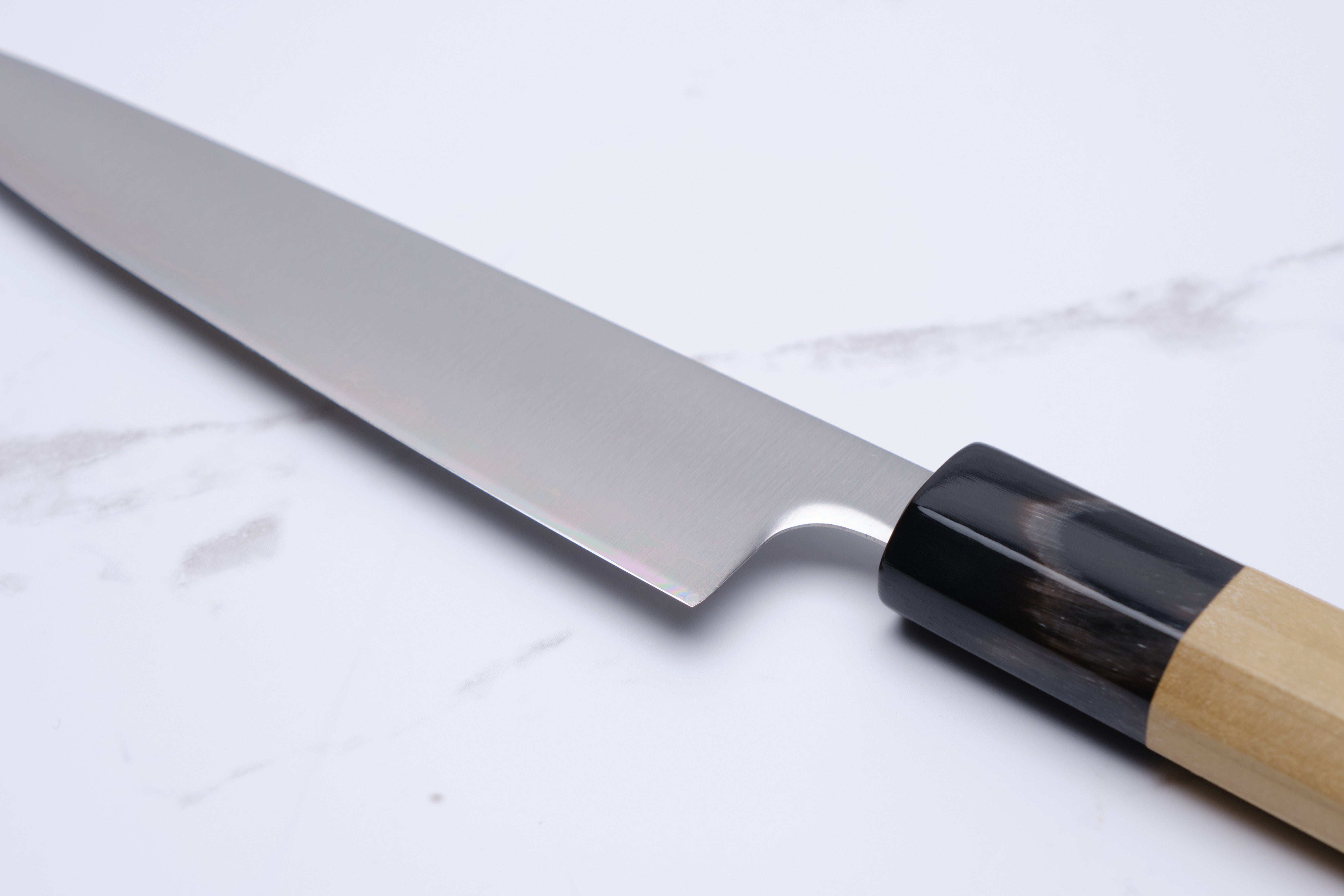

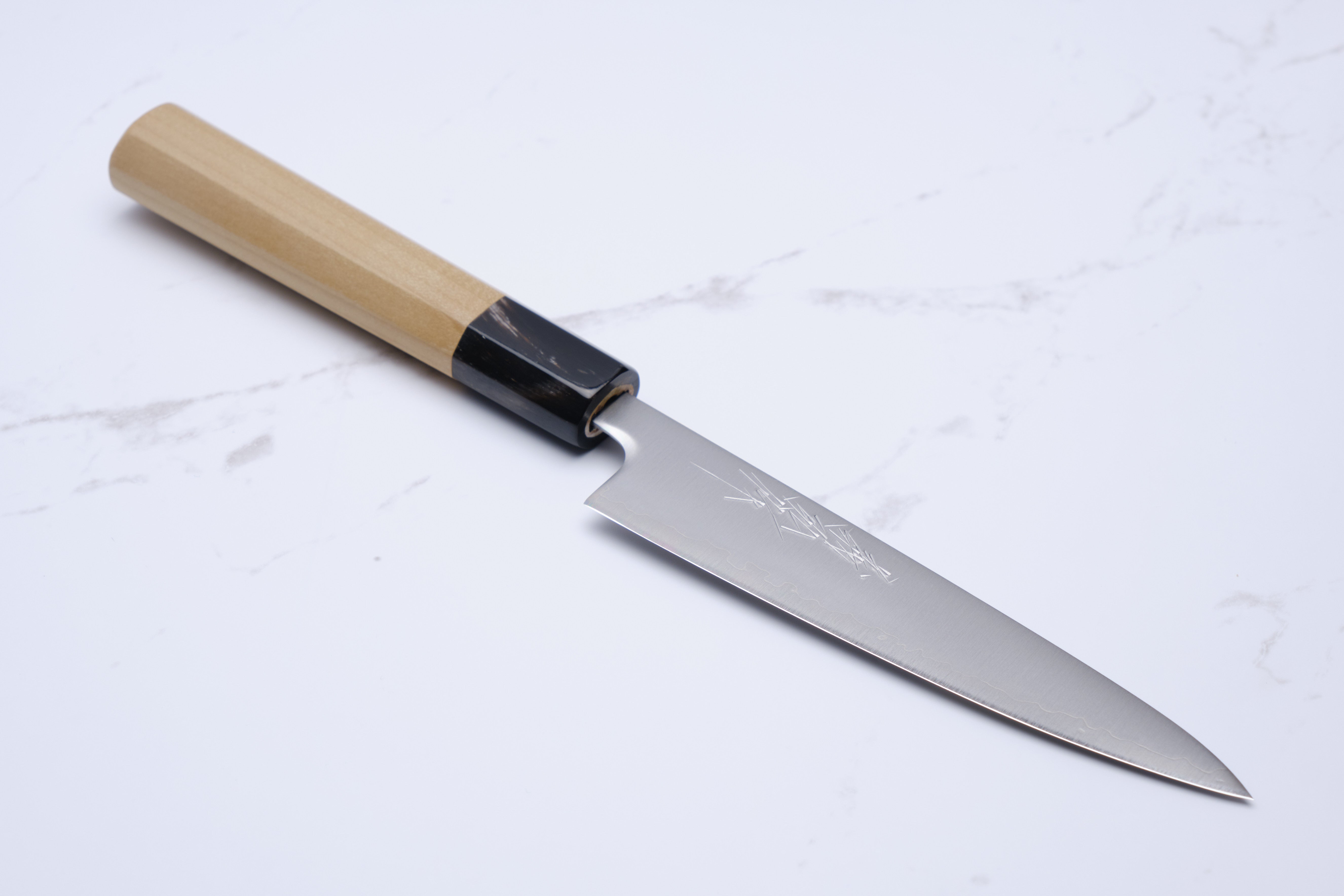
Yamawaki 135mm Utility Aogami-Super
Tax included.
Pickup currently unavailable at Foodgear Shop Torvehallerne

Yamawaki 135mm Utility Aogami-Super
Foodgear Shop Torvehallerne
Rømersgade 18
Torvehallerne Kbh - Hal 1
1362 København
Denmark
From Yamawaki Hamono, this utility knife comes in three layers of steel. The core steel is the coveted Aogami Super which rusts. On each side of the core is a layer of stainless steel which is easy to maintain
Yamawaki Hamono is from Sakai, a town known for its long tradition of knife forging. They enter our range at the top of the podium, alongside blacksmiths such as Konosuke, Moritaka and Fujii. There is no doubt that Yamawaki's knives are an eminent tool for any kitchen.
The utility/petty is the other cornerstone, which, together with the chef's knife, make up the two most versatile knives in any kitchen. Its narrow and incredibly thin profile is created for precision tasks, such as peeling an orange or sanding meat for, for example, tendons. That's not to say that it can't slice vegetables, which it also does with adventurous ease.
This knife is forged in three layers. The inner (core steel) is the very popular Aogami Super, which is characterized by being able to be ground very finely. This gives one of the cleanest cuts possible, but it must be noted that the steel will rust. A rusting steel should be washed and dried immediately after use, and given a thin layer of tasteless - NOT cold-pressed - oil, i.e. the cheapest frying oil you can find.
The remaining layers, namely the outer ones, are made of stainless steel. This makes it easier to maintain, but the knife still requires a lot of attention.
The classic magnolia wood octagonal handle, with a horn tip ferrule. As magnolia is one of the lighter types of wood, the knife does not weigh very much, and therefore gives the knife a fantastic balance and good comfort.
| Brand/series | Yamawaki |
| Type |
Utility/Petty |
|
|
3 layers Blue super/Stainless steel |
|
|
50/50 |
|
|
Octagonal Magnolia/Buffalo horn |
|
|
No! |
|
|
64/65 |
|
Specs (May vary due to handmade) |
Length: 135mm. Height: 28.5mm. Weight: 57g. Width out of the handle: 2mm. |
As with all our kitchen knives, we strongly advise against cutting into all kinds of bones and frozen goods. If you are in doubt as to whether an object is too hard for the knife, you should refrain from cutting it. This knife is particularly sensitive to "chipping" as it is very hard and thin.
Choose options







